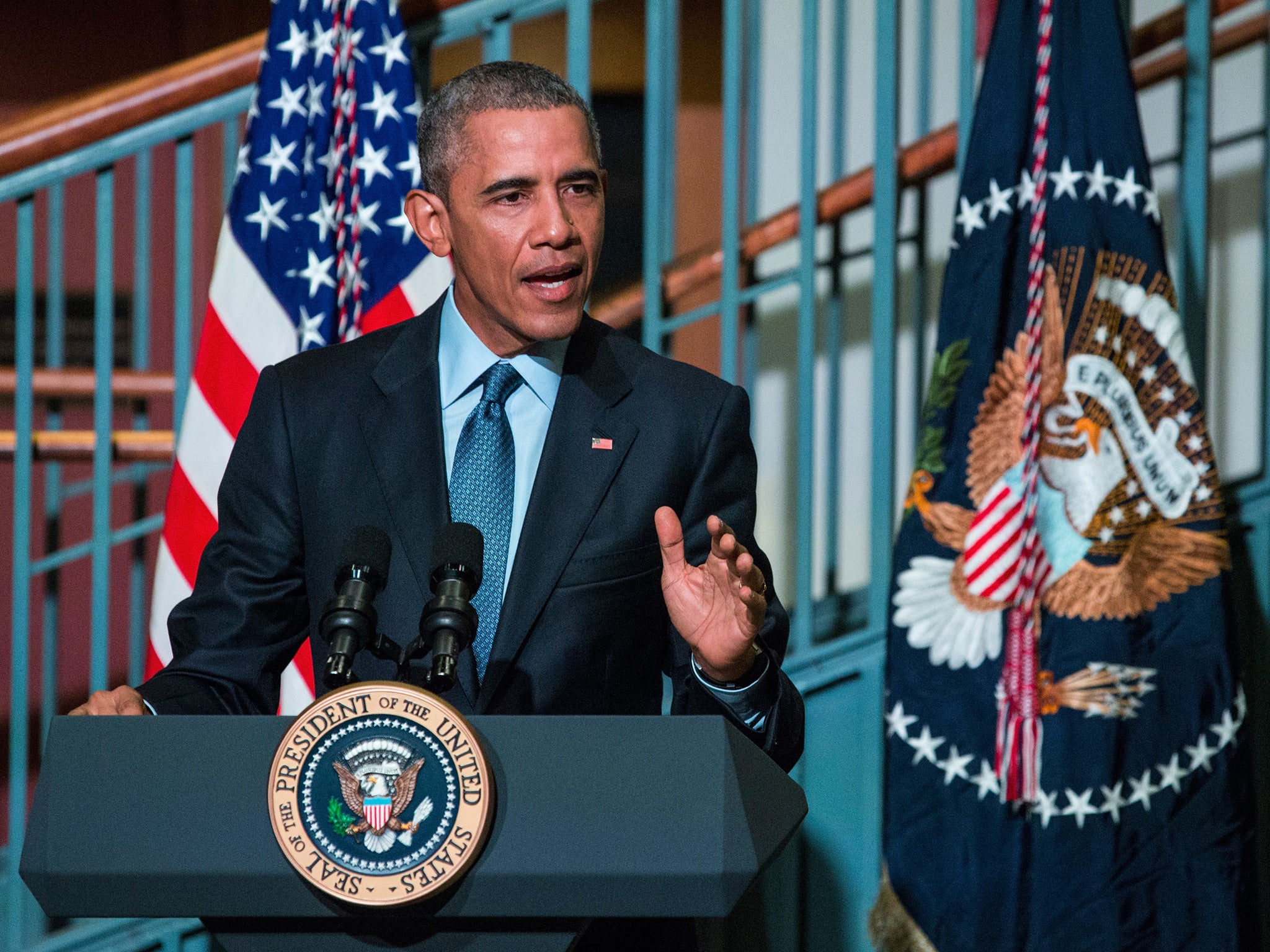Obama to visit Vietnam amid escalating tensions over Chinese expansion in South China Sea
As Vietnam's government continues to repress its people but the need for US-Vietnam relations is crucial to counter China, the president faces difficult decisions

President Barack Obama is visiting Vietnam as part of his 10th trip to Asia to re-focus American foreign policy efforts away from Middle Eastern hotspots and on to forging more links across Asia Pacific.
Mr Obama will stop in Hanoi and Ho Chi Minh City, the first time since Bill Clinton arrived 20 years after the Vietnam War in 1995, when he famously went into the countryside to search for the remains of a downed fighter pilot who had never been recovered.
The current president’s task may seem less dramatic than Mr Clinton's in 2016, but certain tensions have not let up, including the Vietnam government’s repression of the people, jailing dissidents and stalled political reform.
“We obviously have enormous economic and national security interests in the Asia Pacific region, just as we have a profound and enduring interest in preventing any acts of terrorism,” Ben Rhodes, Obama's deputy national security adviser, told CNN.
“We, of course, will be pursuing I think a very important assessment of an agenda that has an enormous bearing on the long-term interests of the American people.”
The president aims to continue to strengthen ties between the two countries following the Vietnam war between 1955 and 1975, which killed millions of people.
Senator John McCain, who spent more than five years in Vietnam as a prisoner of war, supports ending a US arms embargo on the country. As China becomes more aggressive in the South China Sea, Vietnam has emerged as a key counter.
President Obama has not announced whether he will end the embargo, which has been maintained in the face of Vietnamese human rights violations, but has said the issue is under consideration.
The US holds little hope that it will be able to establish its own base at the Cam Ranh Bay naval facility – it is strategically positioned on the western border of the South China Sea – but is more optimistic that simply being able to access the naval base at all would help to deter China.
Mr Obama will then meet G7 leaders on his visit to Japan.
Terrorism will remain high on the G7 agenda, following the downing of an EgyptAir Flight 804 over the Mediterranean Sea.
The president is also expected to face questions about Donald Trump’s foreign policy proposals, and to explain why his plans to launch the Trans-Pacific Partnership trade deal are languishing as government prepares for the election.
Mr Obama will visit Hiroshima, the first sitting president to make a trip to the site.
He is not expected to apologise for the US dropping two nuclear bombs at the end of World War II; rather he will focus on how war impacts innocent civilians around the world.
Join our commenting forum
Join thought-provoking conversations, follow other Independent readers and see their replies
Comments
Bookmark popover
Removed from bookmarks